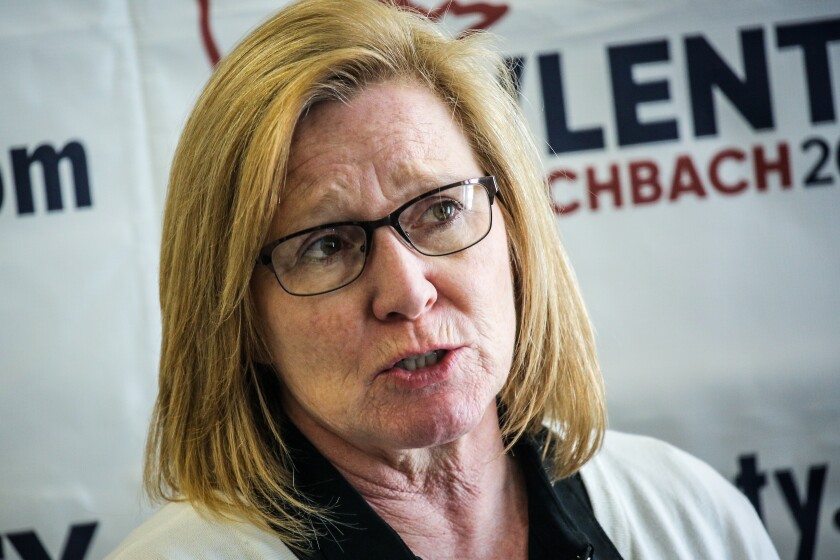MOORHEAD, Minn. — The end was inglorious for Collin Peterson, the plain-spoken politician who was a U.S. Congressman from western Minnesota for three decades. There was no appreciation for the work he did, no acknowledgement of the power he'd compiled.
Peterson for years helped draft the Farm Bill, as important to the rural 7th District as oxygen.
ADVERTISEMENT
Yet all voters saw was a "D" behind his name, standing for Democrat, and that was deemed unacceptable. It was different than the letter behind Donald Trump's name. That, in the polarized political world in which we live, was all that mattered.
Peterson was tossed out of office Tuesday, Nov. 3, winning less than 40% of the vote in a district he once won with 72%. Republican Michelle Fischbach of Paynesville, Minn., staunch conservative, rolled up nearly 54%.
Peterson, from Detroit Lakes, Minn., lost his native Becker County by 14 points. He won Becker County by four points in 2018.
Peterson was finally swamped by the Republican wave in rural Minnesota. Trump won the 7th District by 30 points over Joe Biden, matching his win in 2016 that Peterson was able to overcome.
It was a stunning defeat. Not because Peterson lost. That was not unexpected. Republican challengers had been chippng away at his Teflon for years. It was inevitable that Peterson was going to lose someday because his district had moved so far to the right. But the margin. Who could've foreseen the margin?
Such is life in the Trump era, when crossover voters are as rare as dinosaurs and candidates are judged solely on whether they are a Democrat or a Republican. There is no room for nuance in politics anymore. There is no such thing as a conservative Democrat or a middle-of-the-road Republican. You are either a "D" or an "R" and that is how you are judged. Period. End of story.
Peterson never quite fit that mold, and at one time that was viewed as a good thing. He was a Democrat who strongly supported the Second Amendment and opposed abortion. He considered himself a conservationist, but believed some environmental regulations went too far because they hindered farming. He voted with the Democrats most of the time, but sided with Republicans some of the time.
ADVERTISEMENT
Peterson belonged to a group of Congressional Democrats called the "Blue Dogs," so named because its members believed they were being "choked blue" by the liberal wing of the party. It worked, branding Democrats from conservative districts in a way that helped them keep their seats.
The Blue Dogs were born after a Republican wave in 1994. The label, and the conservative bona fides that went with it, helped Peterson survive another red wave in 2010.
He was able to thread the needle for another four elections, until the roof caved in Tuesday.
It mattered not that Peterson was chairman of the powerful House Agriculture Committee, representing a district that is largely based on agriculture. It mattered not that Peterson essentially turned into a Republican the last few years, saying that Democrats should let Trump build his beloved wall along the Mexican border and voting against the president's impeachment.
The years of service, the resume, the power, the rightward tilt. None of it could save Peterson when the United States hit a point when the only thing that mattered was the party to which you belonged.
In the end, the voters deemed Peterson expendable. He was treated as nothing more than just another Democrat when his constituents decided they wanted a Republican at any cost.
In the end, Peterson was a relic from a bygone era of political nuance and bipartisanship.
ADVERTISEMENT
That world is gone and so is Peterson, cast aside without remorse by a landslide margin in a district he once owned with savvy and independence.
All good things must end, but for Peterson's career to be snuffed by 14 points was one of the more surprising stories of Election Day.
Peterson didn't change, but the political landscape around him did drastically. It's left no room in the wide middle. Only two letters matter and Peterson had the wrong one behind his name, no matter his history or qualifications for the job.
Readers can reach Forum News Service columnist Mike McFeely at mmcfeely@forumcomm.com or (701) 451-5655











